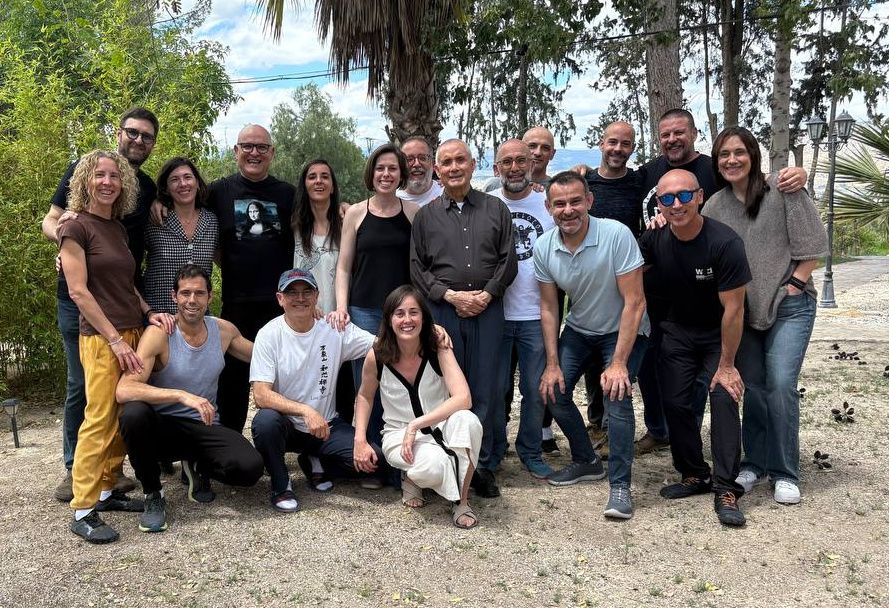⏱️ Estimated reading time: 3 min
About the importance of silence during retreats
When we start a meditation retreat in the CSZCM, One of the first indications offered is to remain silent. It is not just an external norm, but of a skillful means for a deep transformation. Silence during retreats is not an absence, but a different presence. It is not something that is missing, but a very important aspect that the practice supports.
During the first moments of retirement, If the practice is correct, We are moving away from the words we use daily: The explanations, Opinions, The jokes, The justifications. Even well -intentioned comments are suspended. This silence gives us the opportunity to listen to what normally goes unnoticed: The rhythm of breathing, The thoughts that come and go, The breeze, The song of a bird. All that is there, But it is only revealed when we stop.
Many people, especially those who arrive at the retirement and meet related people, They feel that it is unnatural not to be able to talk to each other «with how little we see you, How are we going to be silent?»It is compressible, Sharing is something beautiful. But there is also a time for everything. Save silence is not to suppress or deny closeness, but to recognize that the work we are going to do needs another attitude. An attitude of maturity, of care, of recollection.
Speak when the environment is asking us just the opposite - pressence, attention, depth— is to go in the opposite direction to the purpose of retirement. There may be good intentions, But it breaks the possibility of a deeper experience. Habit, even if for affection, It is a form of immaturity. Silence is a sample of respect, both towards practice and towards the people with whom we share that space.
This silence is part of what we call the first stage of retirement: abandon external concerns. During the first days, It usually becomes evident how much exterior stimuli are dragged - they are, words, gestures, Expectations - and how it costs us to release the need to react or intervene. Allowing silence then becomes a concrete way to cut that link with the superficial and allow our attention to settle.
And if we don't get to settle in that initial silence, We lose the possibility of moving towards the second stage: abandon recurring thoughts. Because after releasing the external, The inner bustle appears strongly. Thoughts, images, judgments arise as incessant waves. Often, Even the desire to meditate well becomes an obstacle: Who wants to meditate is already caught in the duality between whoever wants and what is desired. Only when the outside silence has been hugged with honesty, This second resignation can be made way: stop holding what emerges in the mind, Allow thoughts to go and come as the wind, Without clinging to them.
Silence protects us from the impulse to do and helps us stop building on what happens. Instead of controlling or interpreting, We start allowing. And in that allow, The exterior loses strength. Naturally, A simpler presence emerges, more open, more attentive.
Silence is an openness. It opens us to the own process and that of other people, No judgments or interference. We stop talking, But we do not stop accompanying. Simply, We learn to do it from another place: more respectful, More compassionate, quieter.
And when, At the end of retirement, Silence breaks, We discovered that something in us and we have changed. The words return softer, less necessary. We have learned that there is also communication in silence, There is also company there. A serene company, No demands.
In the Soto Zen Camino Medio Community, We value silence as a pillar of practice. It is a way to return to the essential, to remember that we are not here to add, but to release. Not to build an identity, but to simply inhabit this life that is already happening.
In silence, we let the unnecessary dissolve.
In silence, We remain with what really matters.

